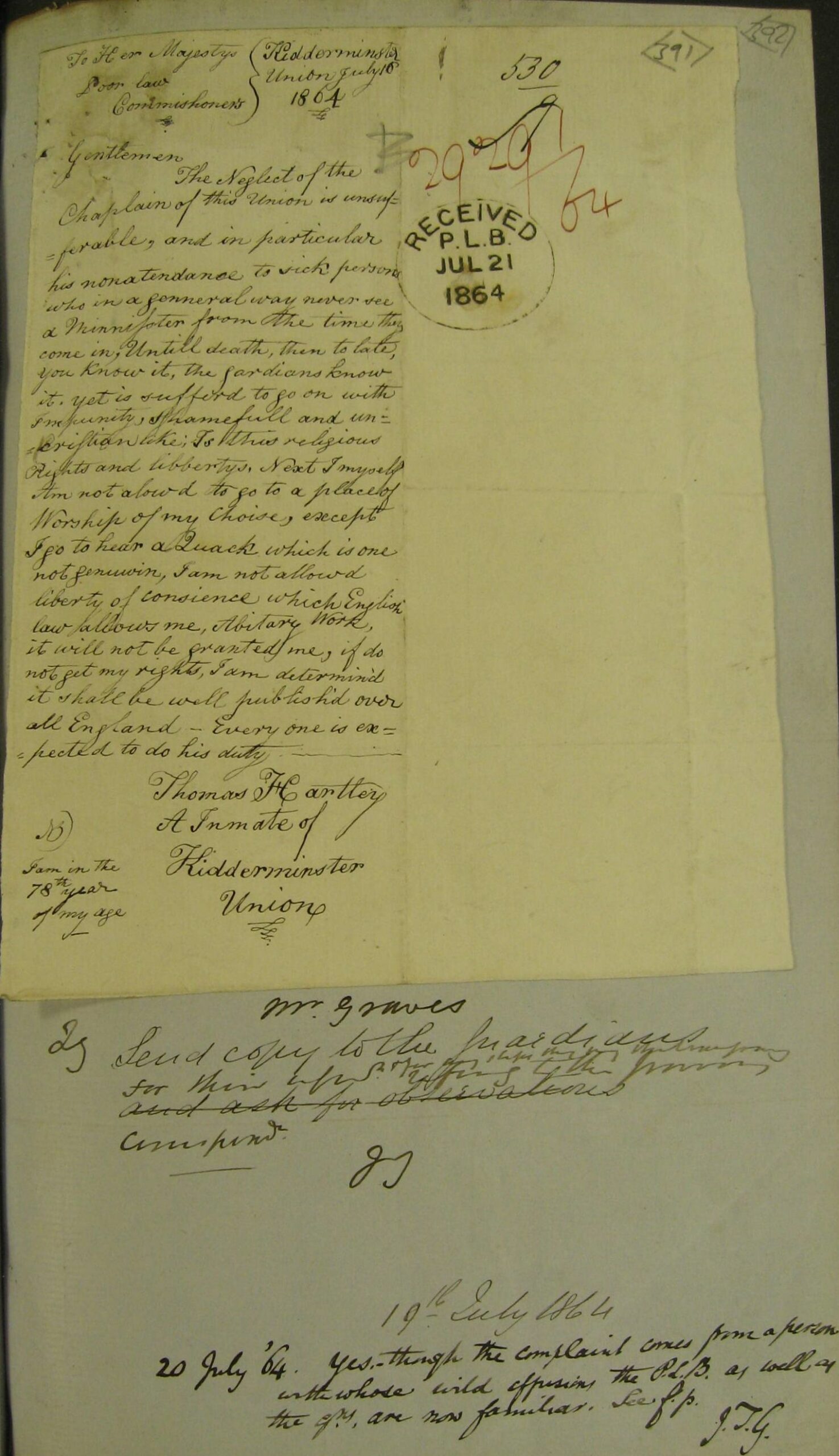
Date of letter: 16 July 1864. Poor Law Union: Kidderminster Poor Law Union
CIRCUMTEXT:
Mr Graves Send copy to the Guardians for their views —– any —– they say —- —– to the —– and ask for observations [correspond] JG 19th July 1864
20 July ’64. Yes. – though the complaint comes from a person with whose wild [opinions] the P.L.B. as well as the gdns. are now familiar. See.[J].p. JTG
TEXT:
To Her Majestys Poor Law Commissioners {Kidderminster Union July 16 1864]
Gentlemen
The Neglect of the Chaplain of this Union is unsufferable, and in particular his nonatendance to sick persons who in a general way never see a Minnister from the time they come in, Untill death, then to late, you know it, the gardians know it. yet is sufferd to go on with impunity, shamefull and unchristian like; Is this religious Rights and libbertys, Next I myself Am not alowd to go to a place of Worship of my Choise, except I go to hear a Quack which is one not genuwin, I am not allowed liberty of consience which English law allows me, Abitary Work, it will not be granted me, if do not get my rights, I am determined it shall be well published over all England – Everyone is expected to do his duty
Thomas Hartley
A Inmate of Kidderminster Union
NB) I am in the 78th year of my age
1. Highlight where Hartley uses this legal terminology:
• rights • liberty • English law • arbitrary • duty.
Discuss the impact of this choice of language.
2. Towards the end of his letter Hartley uses satire to make a point about those in authority. Identify where he uses satire and consider what impact this might have had on the reader.
3. Would you have expected this level of satire from paupers? Why/why not? (consider the risks of writing such statements).
